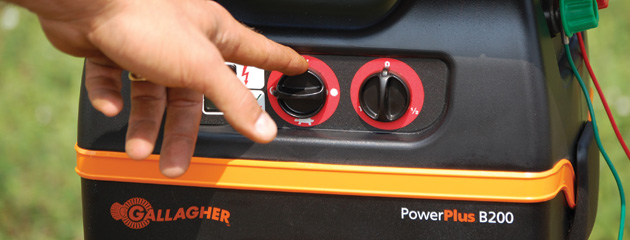
Sep 21, 2010Keeping raccoons out of tunnels
By Derrek Sigler, Assistant Editor
Pound for pound, there isn’t a much more destructive animal to your vegetable crop than the raccoon. Much like cattle farmers do to keep their cows in, an electric fence can work well at keeping raccoons out of your high tunnels. It would also serve to keep other animals away, such as skunks and rabbits. It might help with deer, too.
A Michigan grower who uses high tunnels has a miniaturized version of a fence that is common around cattle farms. The fence was for the raccoons that were decimating the crops under the tunnels.
The fence consisted of four wires, with the lowest 2-3 inches off the ground depending on how even the terrain was. The rest of the wires were spaced 3-4 inches apart. The wires were the standard steel wire commonly found in electric fences, but the grower said he was switching to the newer tape-style fence with braided aluminum wire. It has great flexibility, yet conducts the electricity more efficiently.
Adding to the efficiency of the set-up was the fence energizer. The grower decided to use a Gallagher B200 solar unit. According to the Gallagher website, the B200 model powers up to 90 acres (15 miles) of multi-wire fence. It will store up to 1.45 joules of energy in the battery, too.
For animal control, especially with hunting, orchards and vegetable growers, Gallagher Animal Control Solutions has seen a lot of business lately.
“The areas of deer management, orchards and vegetable growers is by far the fastest growing segment of our business these days,” said owner Bill Gallagher.
So, what makes raccoons so formidable? For starters, they are omnivorous. They can and will eat just about anything. They are also agile and have excellent climbing abilities, especially for an animal that can reach 20 pounds or more in weight. The real issue with raccoons is their intelligence. Studies have shown them to have the same level of intelligence and problem-solving capacity as some primates. An article posted on Answers.com said that raccoons have a basic memory span of about three years.
Temporary electric fences are a great way to protect vegetable crops during the growing season, wrote Paul Curtis, a Cornell Cooperative Extension educator, in a series of Fact Sheet publications.
“They are easy to construct, do not require rigid corners and use readily available, inexpensive materials,” Curtis said. “Install fences at the first sign of damage to prevent animals from establishing feeding habits. Use only UL-approved fence chargers and never connect fences directly to household current.”
Curtis also suggested adding an attractant to the fence. Using something the animal senses as food to bring them in contact with the fence will teach them that the fence can harm them, and their response will be to steer clear of it in the future.














